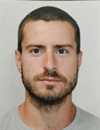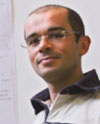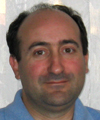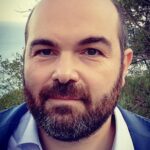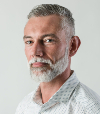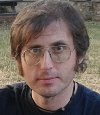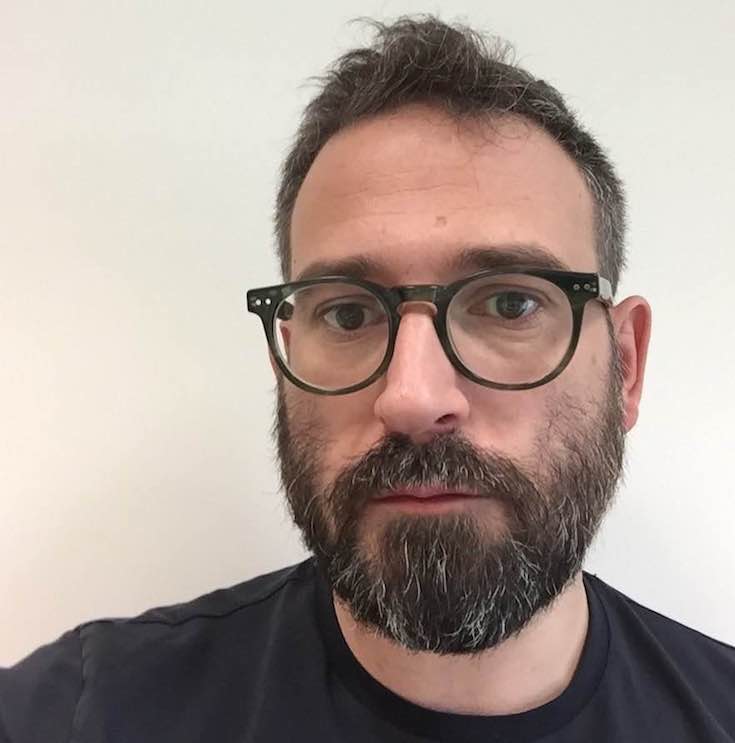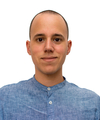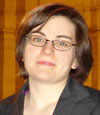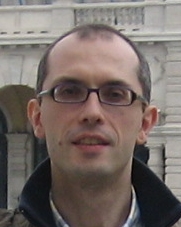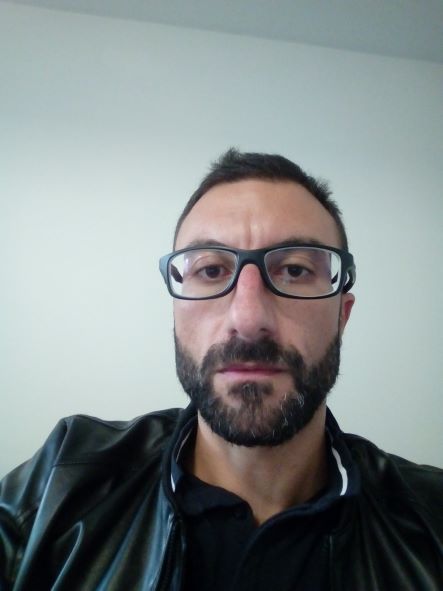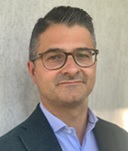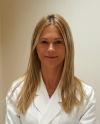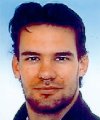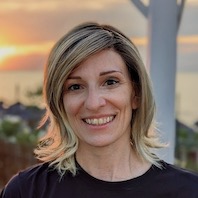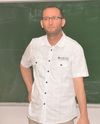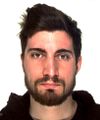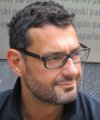Studying at the University of Verona
Here you can find information on the organisational aspects of the Programme, lecture timetables, learning activities and useful contact details for your time at the University, from enrolment to graduation.
Academic calendar
The academic calendar shows the deadlines and scheduled events that are relevant to students, teaching and technical-administrative staff of the University. Public holidays and University closures are also indicated. The academic year normally begins on 1 October each year and ends on 30 September of the following year.
Course calendar
The Academic Calendar sets out the degree programme lecture and exam timetables, as well as the relevant university closure dates..
| Period | From | To |
|---|---|---|
| Primo semestre | Oct 4, 2021 | Jan 28, 2022 |
| Secondo semestre | Mar 7, 2022 | Jun 10, 2022 |
| Session | From | To |
|---|---|---|
| Sessione invernale d'esame | Jan 31, 2022 | Mar 4, 2022 |
| Sessione estiva d'esame | Jun 13, 2022 | Jul 29, 2022 |
| Sessione autunnale d'esame | Sep 1, 2022 | Sep 30, 2022 |
| Period | From | To |
|---|---|---|
| Festa di Tutti i Santi | Nov 1, 2021 | Nov 1, 2021 |
| Festa dell'Immacolata Concezione | Dec 8, 2021 | Dec 8, 2021 |
| Festività natalizie | Dec 24, 2021 | Jan 2, 2022 |
| Festa dell'Epifania | Jan 6, 2022 | Jan 7, 2022 |
| Festività pasquali | Apr 15, 2022 | Apr 19, 2022 |
| Festa della Liberazione | Apr 25, 2022 | Apr 25, 2022 |
| Festa di San Zeno - S. Patrono di Verona | May 21, 2022 | May 21, 2022 |
| Festa della Repubblica | Jun 2, 2022 | Jun 2, 2022 |
| Chiusura estiva | Aug 15, 2022 | Aug 20, 2022 |
Exam calendar
Exam dates and rounds are managed by the relevant Science and Engineering Teaching and Student Services Unit.
To view all the exam sessions available, please use the Exam dashboard on ESSE3.
If you forgot your login details or have problems logging in, please contact the relevant IT HelpDesk, or check the login details recovery web page.
Should you have any doubts or questions, please check the Enrollment FAQs
Academic staff
 elena.antelmi@univr.it
elena.antelmi@univr.it
 anna.barbieri@univr.it
anna.barbieri@univr.it
 mauro.bonafini@univr.it
mauro.bonafini@univr.it
 maurizio.boscaini@univr.it
maurizio.boscaini@univr.it
 mila.dallapreda@univr.it
mila.dallapreda@univr.it
 michele.ginesi@univr.it
michele.ginesi@univr.it
 giovannigerardo.muscolo@univr.it
giovannigerardo.muscolo@univr.it
 giandomenico.nollo@unitn.it
giandomenico.nollo@unitn.it
 andrea.roberti@univr.it
andrea.roberti@univr.it
 luca.selmi@unimore.it
luca.selmi@unimore.it
 claudio.tomazzoli@univr.it
claudio.tomazzoli@univr.it
 federico.tramarin@univr.it
federico.tramarin@univr.it
 ihsen.yengui@univr.it
ihsen.yengui@univr.it
 franco.zivcovich@univr.it
franco.zivcovich@univr.it
 simone.zuccher@univr.it
simone.zuccher@univr.it
Study Plan
The Study Plan includes all modules, teaching and learning activities that each student will need to undertake during their time at the University.
Please select your Study Plan based on your enrollment year.
1° Year
| Modules | Credits | TAF | SSD |
|---|
2° Year activated in the A.Y. 2022/2023
| Modules | Credits | TAF | SSD |
|---|
3° Year activated in the A.Y. 2023/2024
| Modules | Credits | TAF | SSD |
|---|
1 MODULE TO BE CHOSEN BETWEEN THE FOLLOWING| Modules | Credits | TAF | SSD |
|---|
| Modules | Credits | TAF | SSD |
|---|
| Modules | Credits | TAF | SSD |
|---|
1 MODULE TO BE CHOSEN BETWEEN THE FOLLOWING| Modules | Credits | TAF | SSD |
|---|
Altre attività formative: lo studente può scegliere tra le 2 seguenti opzioni: a) 2 CFU di seminari al 2 anno e 7 CFU di tirocinio al 3 anno oppure b) 9 CFU di tirocinio al 3 anno.Legend | Type of training activity (TTA)
TAF (Type of Educational Activity) All courses and activities are classified into different types of educational activities, indicated by a letter.
Modeling and Analysis of Biological Systems (2023/2024)
Teaching code
4S009891
Credits
6
Language
Italian
Scientific Disciplinary Sector (SSD)
ING-INF/06 - ELECTRONIC AND INFORMATICS BIOENGINEERING
Courses Single
Authorized
The teaching is organized as follows:
Modulo A - teoria
Credits
2
Period
Semester 1
Academic staff
Silvia Francesca Storti
Modulo A - laboratorio
Credits
1
Period
Semester 1
Academic staff
Silvia Francesca Storti
Modulo B
Learning objectives
The teaching goals of the course will address the applicatiopin of physics and mathematical models to biological systems
Prerequisites and basic notions
-
Program
------------------------
Modulo A - Teoria
------------------------
(1) Main biomedical signals and images. Origin, characteristics and acquisition of the main bioelectric signals (electroencephalographic signal - EEG, magnetoencephalographic – MEG, electrocardiographic - ECG, electromyographic - EMG, spontaneous and induced signals, evoked potentials - EP, event-related potentials - ERP). (2) Analysis techniques in the time and frequency domains. Fundamentals of digital signal processing and characterization in the time domain. Digital filtering methods, sampling, A/D conversion. Classic methods for frequency analysis; frequency bands and power spectrum, periodogram; time/frequency resolution; bispectra and coherence; feature extraction methods. Brain source imaging (direct and inverse problems for EEG and MEG signals) and functional and effective connectivity analysis methods. Applications on in-silico and real signals. (3) Statistical analysis of biomedical data. Review of basic concepts of descriptive and inferential statistics.
------------------------
Modulo A - Laboratorio
------------------------
The course includes a series of laboratories in the computer lab with hands-on activities mainly in MATLAB environment aimed at familiarizing students with the main analysis methods of biomedical signals and images (e.g. ECG, EMG, EEG, evoked potentials). The laboratories complement lectures by consolidating learning and developing problem-solving and hands-on practical skills in the context of bioengineering.
------------------------
Modulo B
------------------------
Introduction to the biophysics of neuronal activity. The equivalent circuit model of the cell membrane. Mathematical modeling of the membrane potential through ordinary differential equations of the single compartment model. The Hodgkin and Huxley equations for the numerical simulation of the action potential. Multi-compartmental and synaptic models. Introduction to numerical simulation of neuron and neuronal network activity. Introduction to computer technologies (Py-Neuron, Nest Simulator) that allow the simulation of neuronal circuits and extended brain regions with single cell resolution.
Bibliography
Didactic methods
------------------------
Modulo A
------------------------
Teaching methods. Regular lectures with power point presentation and blackboard, laboratory exercises and projects. The course approach is "hands on" where students will experiment the design and data analysis with the most suitable methodologies to solve real-life clinical-medical problems. Educational material will be available to students enrolled in the course on the Moodle platform. This material includes lecture presentations in PDF format and material related to laboratory activities. For further details and supplementary materials, please refer to the reference books.
------------------------
Modulo B
------------------------
Teaching is delivered through streaming lessons. The lessons will provide python programming examples. Slides will be available on the MOODLE Portal page (in compliance with copyright).
Learning assessment procedures
------------------------
Modulo A
------------------------
Assessment is conducted via oral examination preceded by a discussion on hands on activity related to neuronal activity modeling.
------------------------
Modulo B
------------------------
Assessment is conducted via oral examination preceded by a discussion on the group project assigned during the lab.
Evaluation criteria
To pass the exam, the students must show that: - they have understood the theoretical and practical concepts of the course; - they are able to use the knowledge acquired during the course to solve the assigned problems related to the processing of biomedical signals and data; - they are able to program in MATLAB environment in the context of signal and biomedical data processing; - they are able to use the knowledge acquired during the course to manage the modeling of neuronal activity.
Criteria for the composition of the final grade
The final grade will be the average of the two grades from the two modules.
Exam language
Italiano
Sustainable Development Goals - SDGs
This initiative contributes to the achievement of the Sustainable Development Goals of the UN Agenda 2030. More information on sustainability
Type D and Type F activities
Le attività formative di tipologia D sono a scelta dello studente, quelle di tipologia F sono ulteriori conoscenze utili all’inserimento nel mondo del lavoro (tirocini, competenze trasversali, project works, ecc.). In base al Regolamento Didattico del Corso, alcune attività possono essere scelte e inserite autonomamente a libretto, altre devono essere approvate da apposita commissione per verificarne la coerenza con il piano di studio. Le attività formative di tipologia D o F possono essere ricoperte dalle seguenti attività.
1. Insegnamenti impartiti presso l'Università di Verona
Comprendono gli insegnamenti sotto riportati e/o nel Catalogo degli insegnamenti (che può essere filtrato anche per lingua di erogazione tramite la Ricerca avanzata).
Modalità di inserimento a libretto: se l'insegnamento è compreso tra quelli sottoelencati, lo studente può inserirlo autonomamente durante il periodo in cui il piano di studi è aperto; in caso contrario, lo studente deve fare richiesta alla Segreteria, inviando a carriere.scienze@ateneo.univr.it il modulo nel periodo indicato.
2. Attestato o equipollenza linguistica CLA
Oltre a quelle richieste dal piano di studi, per gli immatricolati A.A. 2021/2022 e A.A. 2022/2023 vengono riconosciute:
- Lingua inglese: vengono riconosciuti 3 CFU per ogni livello di competenza superiore a quello richiesto dal corso di studio (se non già riconosciuto nel ciclo di studi precedente).
- Altre lingue e italiano per stranieri: vengono riconosciuti 3 CFU per ogni livello di competenza a partire da A2 (se non già riconosciuto nel ciclo di studi precedente).
Tali cfu saranno riconosciuti, fino ad un massimo di 3 cfu complessivi, di tipologia D. Solo nel caso in cui la data di acquisizione della certificazione sia precedente al 27/10/2023 (data della delibera del Collegio didattico di Ingegneria dell'Informazione) potranno essere riconosciuti un massimo di 6 CFU, come precedentemente previsto. Ulteriori crediti a scelta per conoscenze linguistiche potranno essere riconosciuti solo se coerenti con il progetto formativo dello studente e se adeguatamente motivati.
Per gli immatricolati A.A. 2023/2024 i crediti per certificazioni linguistiche ulteriori a quelle previste dal piano didattico vengono riconosciuti come crediti sovrannumerari taf D.
Modalità di inserimento a libretto: richiedere l’attestato o l'equipollenza al CLA e inviarlo alla Segreteria Studenti - Carriere per l’inserimento dell’esame in carriera, tramite mail: carriere.scienze@ateneo.univr.it
3. Competenze trasversali
Scopri i percorsi formativi promossi dal TALC - Teaching and learning center dell'Ateneo, destinati agli studenti regolarmente iscritti all'anno accademico di erogazione del corso https://talc.univr.it/it/competenze-trasversali
Modalità di inserimento a libretto: non è previsto l'inserimento dell'insegnamento nel piano di studi. Solo in seguito all'ottenimento dell'Open Badge verranno automaticamente convalidati i CFU a libretto. La registrazione dei CFU in carriera non è istantanea, ma ci saranno da attendere dei tempi tecnici.
4. Periodo di stage/tirocinio
Oltre ai CFU previsti dal piano di studi (verificare attentamente quanto indicato sul Regolamento Didattico): qui il VADEMECUM DELLE ATTIVITÀ DI TIROCINIO (indirizzo email della Commissione tirocini: tirocini-ismp@ateneo.univr.it ); qui la relativa pagina informativa (con link a moodle); qui informazioni su come attivarlo.
Insegnamenti e altre attività che si possono inserire autonomamente a libretto
| years | Modules | TAF | Teacher |
|---|---|---|---|
| 1° | Subject requirements: mathematics | D |
Franco Zivcovich
|
Career prospects
Module/Programme news
News for students
There you will find information, resources and services useful during your time at the University (Student’s exam record, your study plan on ESSE3, Distance Learning courses, university email account, office forms, administrative procedures, etc.). You can log into MyUnivr with your GIA login details: only in this way will you be able to receive notification of all the notices from your teachers and your secretariat via email and soon also via the Univr app.
Attendance
The inter-university nature of the course of study lies in the cooperation of the three universities in the provision of faculty. Therefore, teaching delivery takes place at the administrative and teaching site in Verona and not in the partner universities. This means that it is not possible to attend this bachelor's degree program in the University of Trento or Modena-Reggio Emilia; however, it is possible to use the study spaces of the partner universities, thanks to the agreement between them.
As stated in the Didactic Regulations for A.Y. 2022/2023, course attendance is not mandatory.
Career management
Student login and resources
Erasmus+ and other experiences abroad
Graduation
List of theses and work experience proposals
| theses proposals | Research area |
|---|---|
| THESIS_1: Sensors and Actuators for Applications in Micro-Robotics and Robotic Surgery | Various topics |
| THESIS_2: Force Feedback and Haptics in the Da Vinci Robot: study, analysis, and future perspectives | Various topics |
| THESIS_3: Cable-Driven Systems in the Da Vinci Robotic Tools: study, analysis and optimization | Various topics |
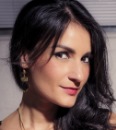
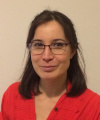
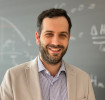
 0461 283551
0461 283551

